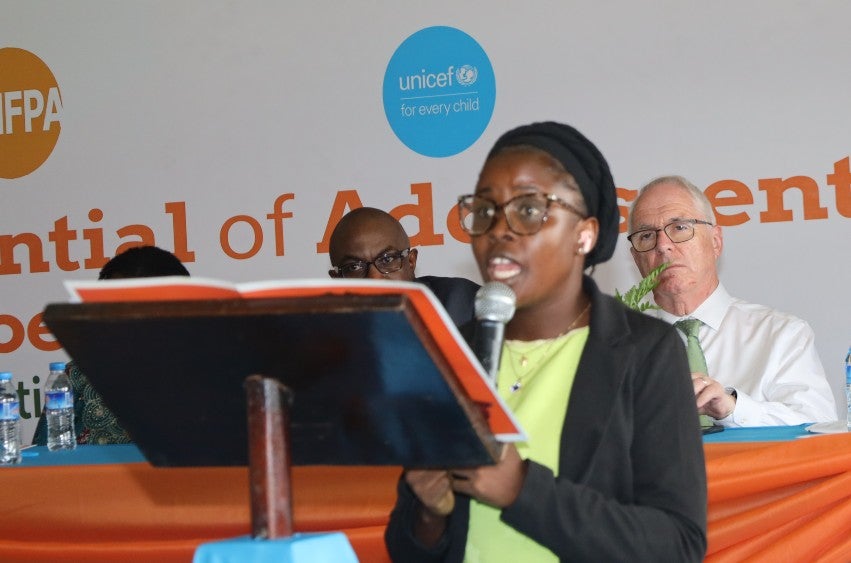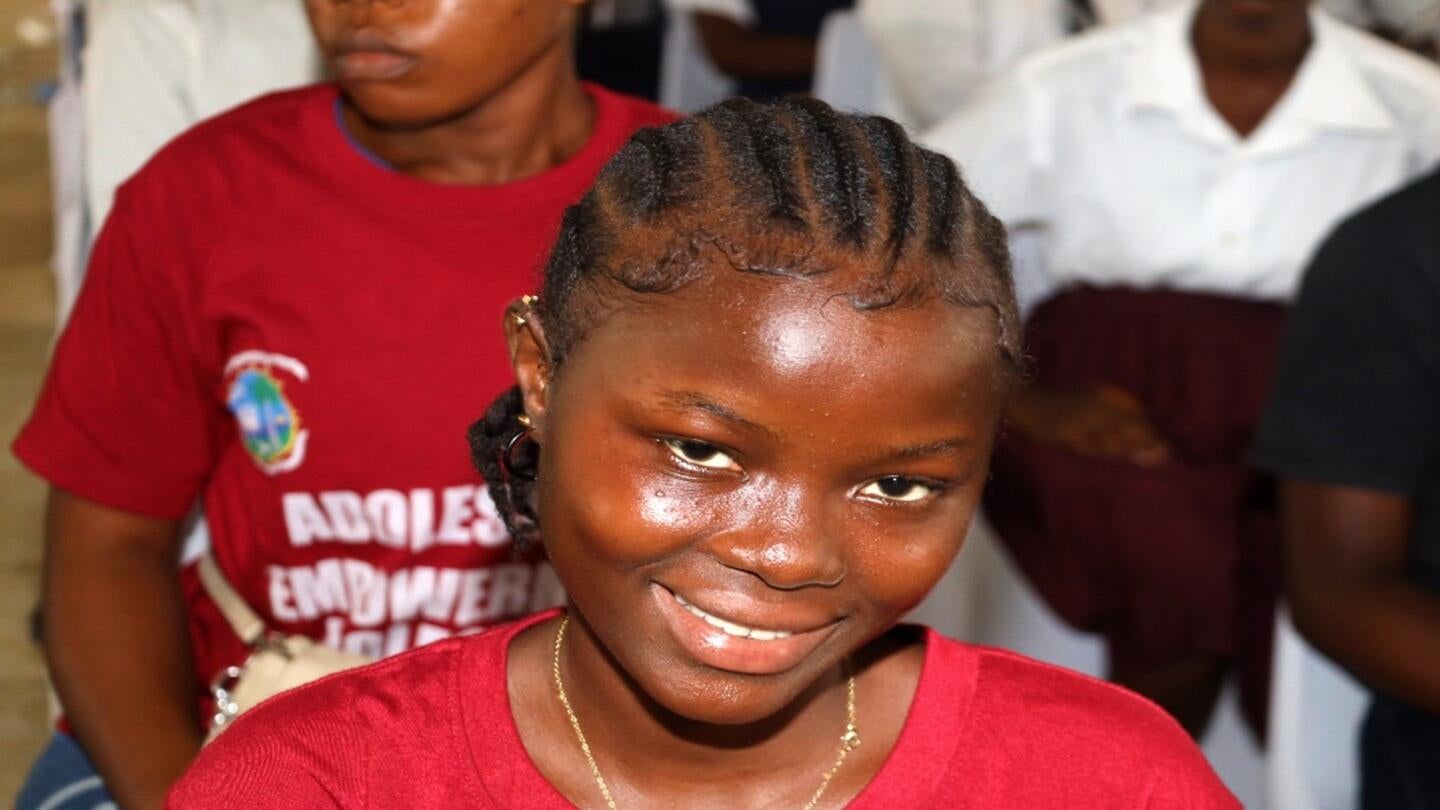Monrovia, Liberia – The United Nations Population Fund (UNFPA) and the United Nations Children’s Fund (UNICEF) have launched a five-year programme to support the Government to address the sexual and reproductive health and rights, and nutrition needs of adolescent girls in Liberia. The Protect, Empower, and Nurture - harnessing the full potential of adolescent girls in Liberia programme, at the cost of 7 million euro, is funded by the Embassy of Ireland.
The programme is aimed at delivering adolescent-responsive sexual and reproductive health and rights and nutrition services through schools, health facilities and community outreach activities, to empower over 107,000 adolescent girls in the three counties: Grand Gedeh, Montserrado, and Rivercess.
The programme further aims to create safe and inclusive spaces for adolescent girls including the most vulnerable and marginalized to access sexual and reproductive health and rights and nutrition services, and build their leadership skills, to enable them to thrive free from discrimination.
According to the 2019/20 Liberia Demographic Health Survey, 32 percent of girls between the ages 15 to 19 are either pregnant or are mothers. The high rate of teenage pregnancy in Liberia has persisted for the past four decades. Teenage pregnancy leads 15 percent of girls to drop out of school. In addition, adolescent girls account for 60 percent of obstetric fistula cases. Furthermore, 55 percent of girls experience anemia, contributing to intergenerational malnutrition.
“The Protect, Empower, and Nurture Programme will empower girls to lead healthier, safer and more dignified lives. Addressing adolescent girls' sexual and reproductive health and rights, and nutrition issues together is not just strategic, it is a moral imperative to ensure no adolescent girl is left behind.” Mr. Neale Richmond, Minister of State for International Development and Diaspora, Ireland, said in his speech during the launch of the programme.
Madam Christine Umutoni, UN Resident Coordinator to Liberia, spoke on behalf of the UN system. “I call on all of us—government institutions, development partners, civil society, the private sector, traditional and religious leaders, parents and young people themselves—to join hands. Let us build a future where every adolescent girl is safe, confident, informed, and equipped to lead. The UN is committed to working with all stakeholders to realise this goal,” she said.
Liberia’s Minister of Health, Dr. Louise M. Kpoto, described the programme as an “investment in the future for a safe and productive Liberia” and assured UNFPA and UNICEF of the Government of Liberia’s full support in the implementation of the programme. She noted that the time is now to address the country’s high rate of teenage pregnancy and harness the leadership potential of adolescent girls.
Providing the overview of the programme, Mr. Leonard Kamugisha, UNFPA Deputy Representative and Officer-in-Charge said the initiative will also work with men and boys to transform social norms that perpetuate gender inequality. He also highlighted the significance of the joint initiative by UNFPA and UNICEF and called for scale up approaches to improve the situation of adolescent girls in Liberia. In the same light, Mr. Andrew Brooks, Country Representative for UNICEF pointed out the need to address anemia as part of efforts to reduce riskier pregnancies and higher rates of stunting among children in Liberia.
Ms. Christiana Queyou, President of Liberia’s Adolescent Girls Advisory Panel urged the relevant stakeholders to ensure continued actions for girls to remain in school during menstruation and to eradicate the stigma adolescent girls face in accessing menstrual hygiene.

The programme is governed by a Steering Committee composed of institutional stakeholders from the Ministry of Health, Ministry of Education, Ministry of Gender, Children and Social Protection, Ministry of Internal Affairs and the Ministry of Youth and Sports from the government of Liberia. The UN is represented on the Steering Committee by UNFPA, UNICEF, WHO, UNWOMEN, WFP and FAO. The Steering Committee includes the participation of three adolescent girls for the National Adolescent Girls Advisory Panel.


